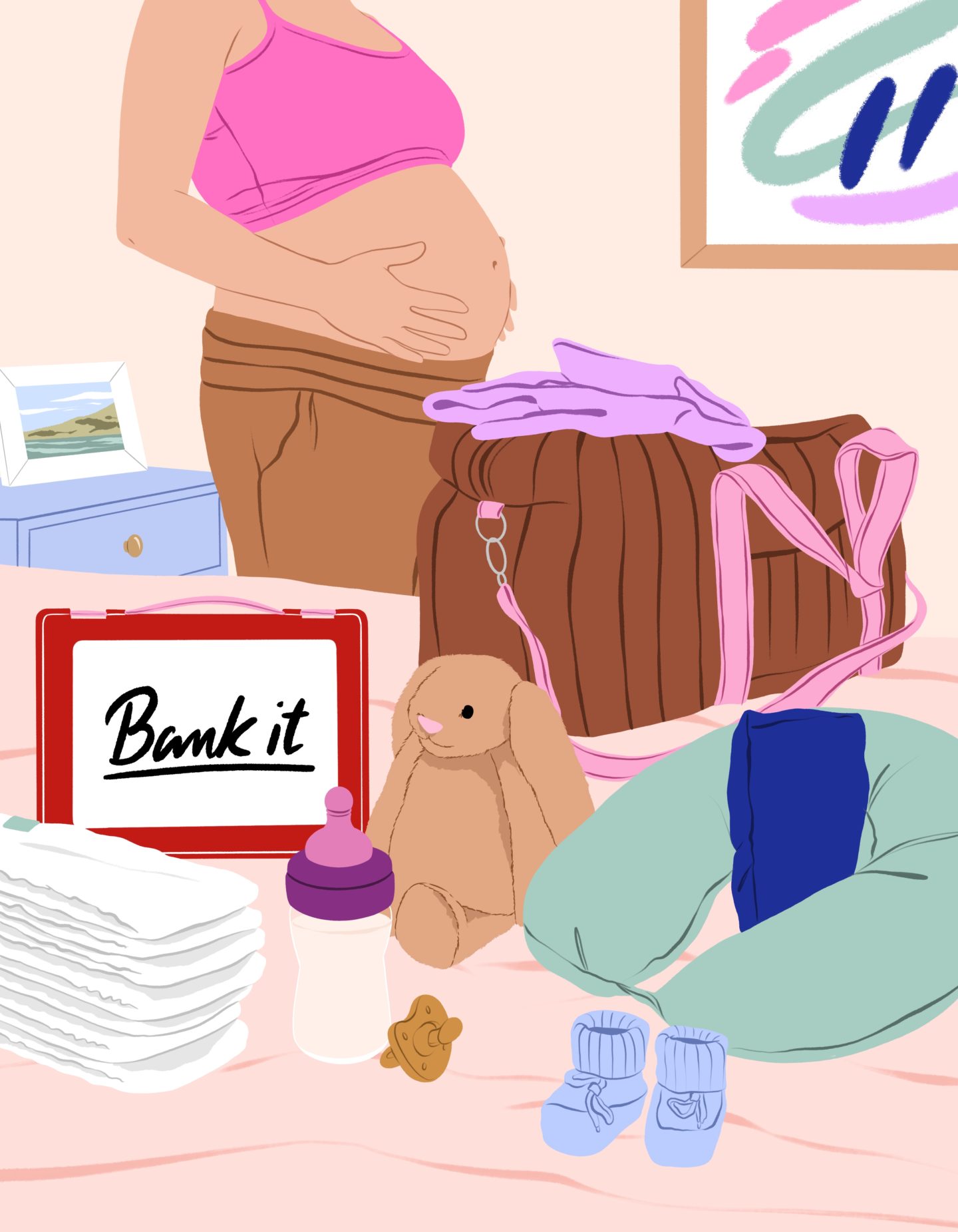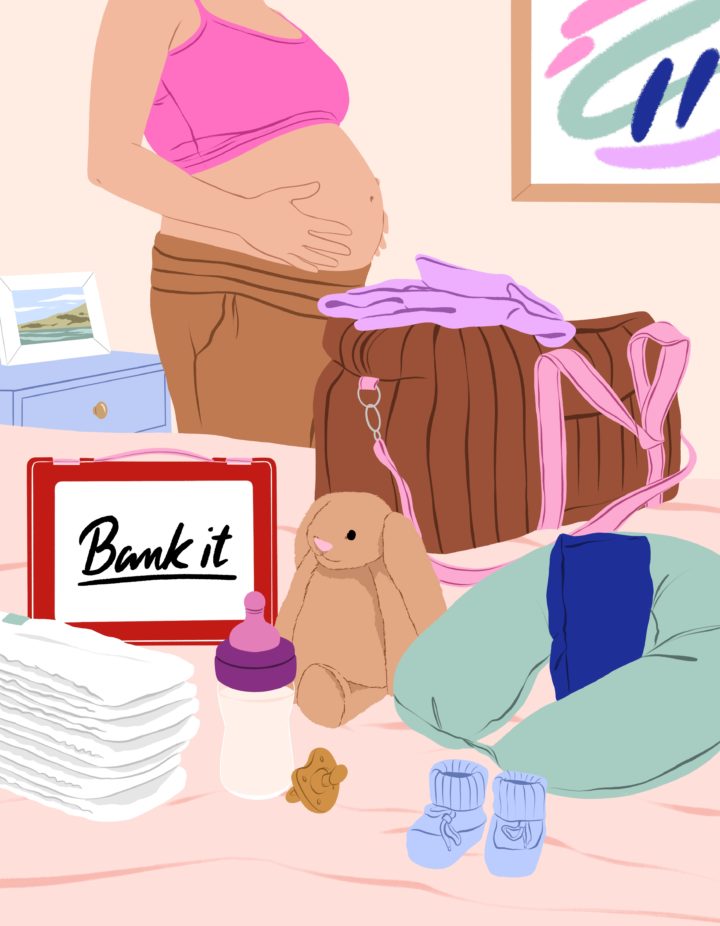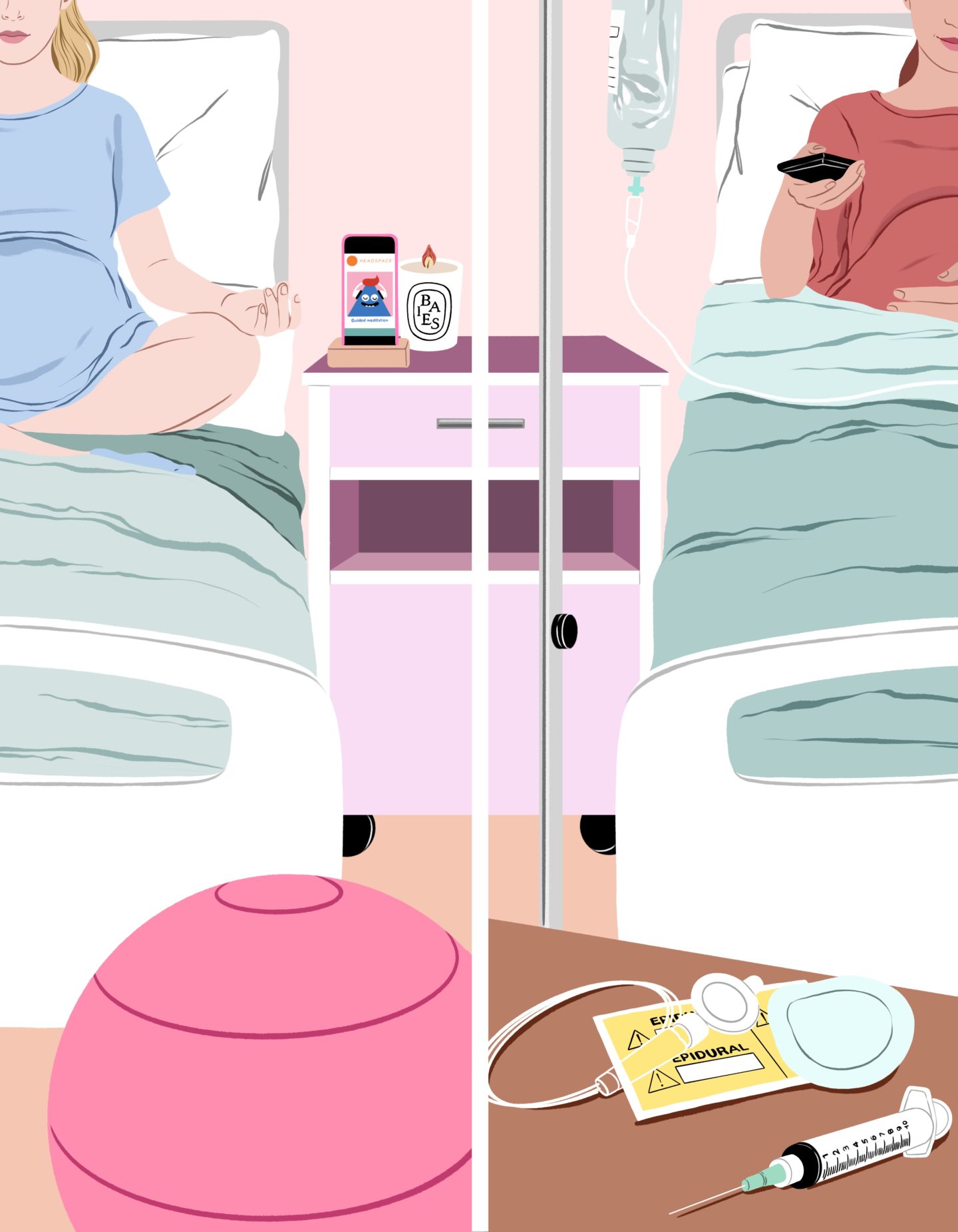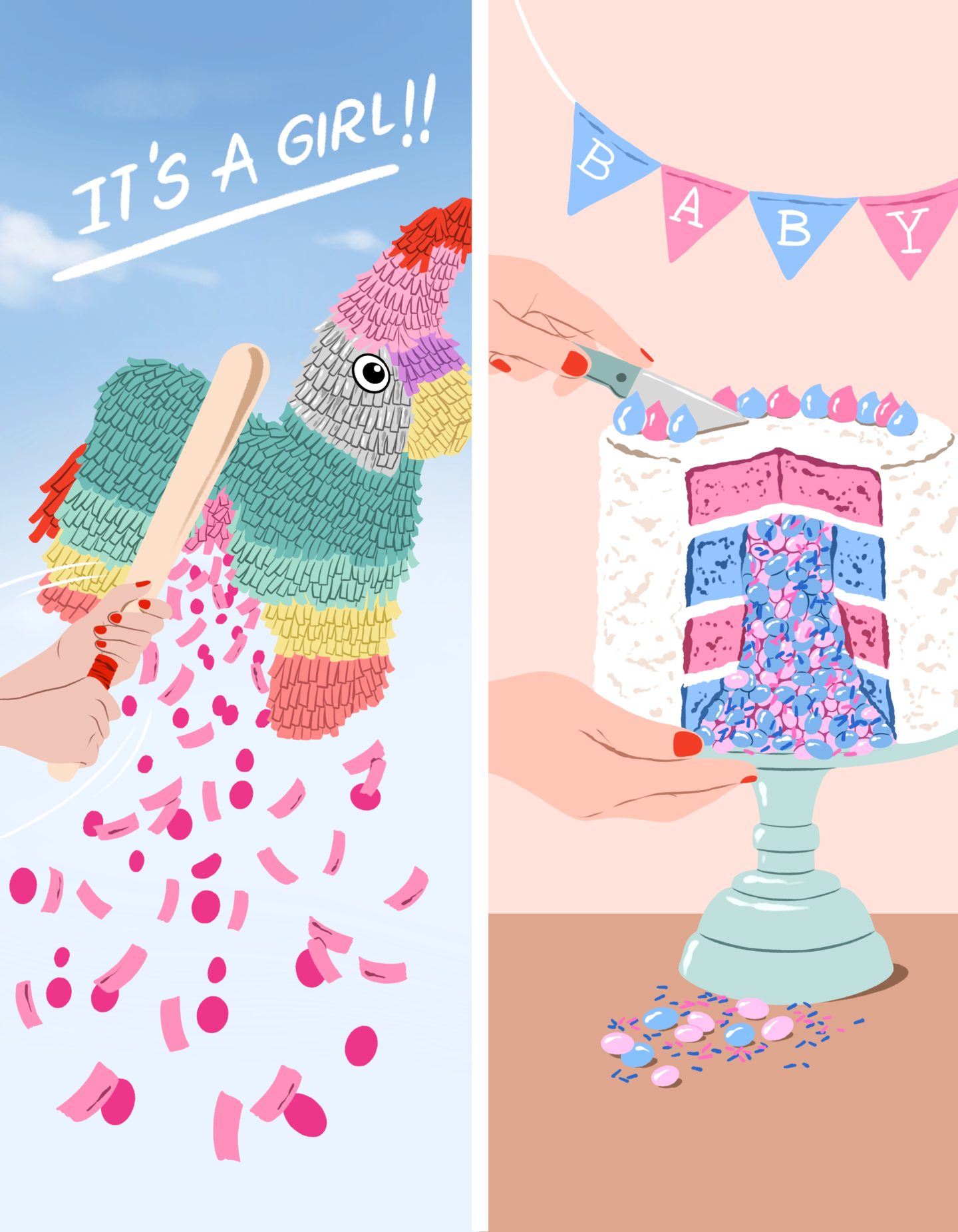In our series The Debate, our community of real moms tackle the pros and cons around common parenting choices. The truth is, like so many decisions around child rearing, there is no right or wrong answer. At HATCH, our job is to give voice to both sides of any debate, peppering real mom wisdom with the necessary facts so that you can make the best decision for you and your family.
Cord Blood Banking is one of those pregnancy decisions that feels like a game of chance – baby insurance, if you will. You’re told during your pregnancy that your baby’s umbilical cord and placenta will have some extra blood inside after you deliver that contains cells that could help them if they fall ill with certain diseases, either now or later. In addition to all the usual blood stuff – ie plasma, platelets, white and red blood cells etc – cord blood has special stem cells that can treat conditions like Parkinson’s, cerebral palsy, diabetes and more.
So to bank that blood seems like a no-brainer, right? Well, not necessarily. Studies show that the odds of a baby tapping into their cord blood is one in 2,700 to one in 200,000. Also a baby’s own cord blood cells may be unsuitable to treat any condition that appears down the road because the mutations responsible for that disorder are typically present at birth. Plus, it can cost upwards of $2,000 or more to first bank it and then pay for its little storage space.
“I always tell patients that the technology for stem cell transplants is there, but for cord stem cells, there’s not as much available to be sure it’s going to work,” says Dr. Shieva Ghofrany, an OB-GYN based in Stamford, CT. “So if it were cheaper or guaranteed, most of us would encourage it. If patients have a family history or first degree relative who had leukemia or lymphoma, I’d be apt to encourage it more. It really comes down to dollars and cents.”
At Babe, we don’t judge what you do with your babe’s cord blood, but if you’re weighing the decision, check out two mamas who’ve been there, done that, one who opted to bank that blood and the other who opted out. As always, whatever you decide, do you.
Bank That Shizz
Rebecca Goodman
Architect
Charlie, 7
Will, 5
“We’re science people and we have a lot of doctors in our family. Originally we were going to do the public one, which means other babies can access it and use it, but then my husband – who has type one diabetes – spoke with his endocrinologist and there would be a great benefit if our kids were also diagnosed with type one diabetes. Apparently, in several different pre-screening studies, if your child is diagnosed, you can take their cord blood and distill it down to something that can help prolong the “honeymoon period,” which is the time before it becomes full scale diabetes. It can be connected into one dose of this treatment that can help prolong this period so that’s why we did it.
It’s expensive, which is annoying. We picked whichever bank my doctor said we should do and I blindly trust my OB. I just felt like if she’s saying we should do this, we should do it. We did the 10 year package, which in all likelihood if one of our kids develops diabetes, it will be before then. Dave was not diagnosed until 15, so maybe we’ll hang on to it, until they’re 20 or they go to college, whatever comes first. But for someone with no preexisting complications, I would’ve donated it to the public one, where it’s banked but in a public bank. So anyone who might need it can get it based on matching types.”
No Bank, No Thanks
Jen Shielder
Full Time Mama
Mia, 9 months
“I definitely looked into it. I obviously wanted to do anything to help my child, of course. I have friends who did it, and when it came down to it, there were two factors. One is that everything I learned is it’s most likely not used for your actual child. Maybe their sibling, like a future child, but I was fairly certain I wasn’t having ore than one kid. So that was a factor. My other reason was that my now pediatrician, who has a very large, thriving practice, told me that in New York City, out of all the years she’s been practicing, she’d never seen cord blood coming to the rescue with any sick child. It’s just the rarest chance ever that it could be used.
Obviously used for unique circumstances, I totally get it. But the chance that given my situation it would almost never be used, and the money is significant, it all played a big factor. I’m also a single mom. That was a factor, too. I need that money to make sure I can provide for my daughter’s education. I felt that was a better use of it. I did look into public banking, which I’m all in favor of. Public banks have come to the rescue for some kids, but it wasn’t offered at hospital where delivered.
In making the decision, there was this strong element of fear. The marketing of these storage facilities is very strong, and it turned me off and made me question all of it. If cord blood banking is really that valuable, why are these facilities spending so much on flashy marketing? Anyway I felt confident in my decision. If god forbid my daughter gets sick, I don’t believe that I’ll wish I did cord blood banking.
If someone is on the fence, there’s no harm in it other than money. If you have all money in world, why not? It won’t hurt anyone. But for everyone else who is probably cautious about money, the research is just too limited.”




